7 Nutrition Experts Reveal Best Brain Foods For Seniors
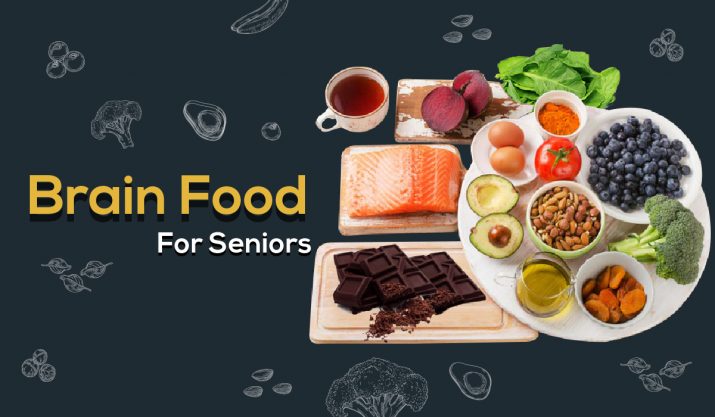
Table of Contents
- Include Foods High in B Vitamins in Your Healthy Diet
- Boost Your Brain Power with Healthy Proteins and Foods with Antioxidants
- Eat Healthy Fats and Anti-Inflammatory Foods to Promote Cognitive Function
- Reduce the Risk of Dementia and Cognitive Decline with the MIND Diet
- Eat Blueberries, Wild Salmon, and Walnuts for Improved Brain Health and Cognition
- Choose Oily Fish, Such as Salmon, Tuna, Sardines, and Herring, for Omega 3 Fats
- Choose Wholesome Foods from All Food Groups Every Day for Huge Health Benefits
- Conclusion
Have you ever misplaced your car keys, forgotten to pay a bill, or walked into a room and realized that you couldn’t remember why you went in there? These things are pretty common and shouldn’t normally cause concern, but experiencing repeated instances of feeling confused or forgetful could point to a cognitive decline.
Cognitive decline doesn’t only refer to dementia or Alzheimer’s disease. Sometimes seniors experience a milder level of impairment. According to a CDC survey on self-reported cognitive impairment, 12.7% of seniors aged 60 and up reported memory loss or confusion, and 35.2% reported functional difficulties during the previous 12 months.
While you may not be able to completely prevent or stop cognitive decline, you can reduce your risk by choosing healthy foods that support brain health. We asked seven nutrition experts to share their advice on which foods are the best choices to boost brain health, and below is what they shared with us.
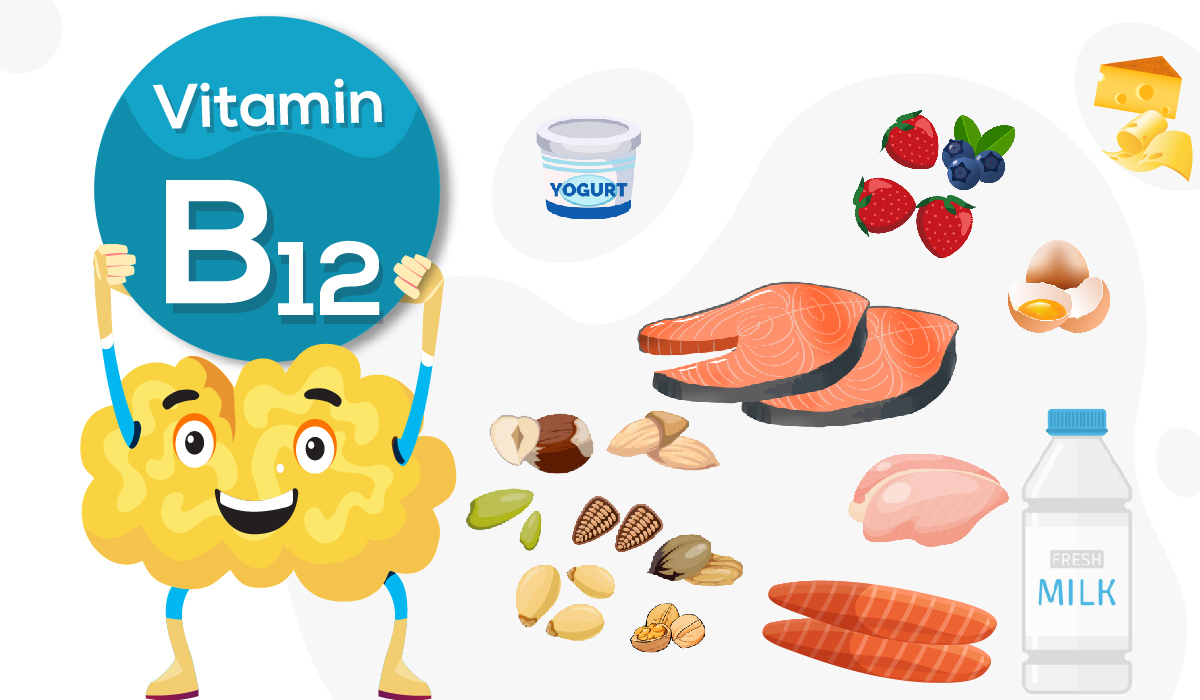
Include Foods High in B Vitamins in Your Healthy Diet
Coral Dabarera Edelson, MS, RD: CoralRD.com
“B vitamins including folate and B12, are important for brain function, especially as we get older. Organic pasture-raised eggs, wild or responsibly-farmed salmon, and leafy greens are great sources of these vitamins. Antioxidants and other phytochemicals are important for brain function as well. Fresh or frozen berries include plenty of these helpful nutrients. Eating colorful fruits and vegetables will help increase antioxidant and phytochemical intake, so eat the rainbow over the course of the week!”
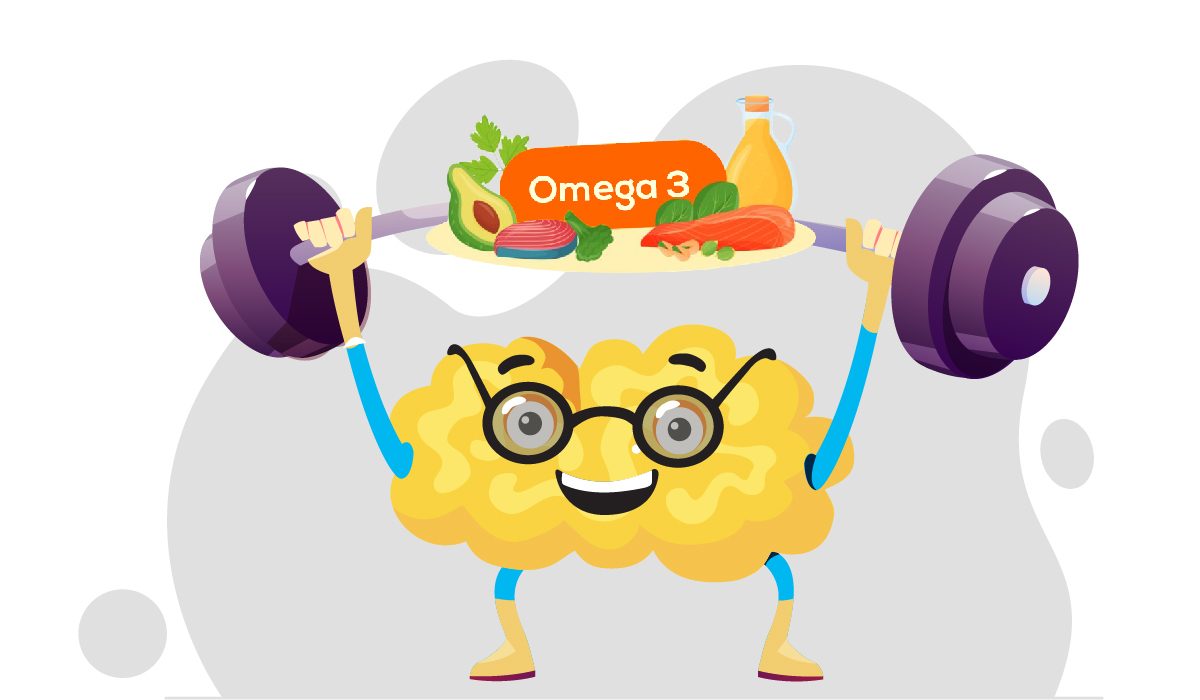
Boost Your Brain Power with Healthy Proteins and Foods with Antioxidants
Nicole DeMasi Malcher, MS, RDN, CDCES: NicoleDemasi.com
“Foods that are good for the brain are generally high in healthy fats, antioxidants, vitamins, and minerals. Healthy protein sources like fatty fish, whole eggs, nuts, seeds, tofu, and tempeh help to create the neurotransmitters our bodies need to stabilize mood and healthy brain function.
Here are my top 8 brain-boosting foods for seniors:
- Foods rich in omega-3 fatty acids:
- You can’t discuss brain health without mentioning omega-3 fats. The brain is made of about 60% fat. Half of that fat is the omega-3 fat type. Omega-3 fatty acids EPA and DHA are vital for normal brain function and development throughout all stages of life. Low levels of DHA in the blood have been associated with smaller brain size and learning and memory deficits in older adults, a sign of accelerated brain aging (1).
- EPA & DHA have also been shown to have a positive effect on depression and mood.
- People with a mild decline in brain function or depression might consider taking 1,000–2,000 mg of omega-3s from fish oil or algae oil daily. Do not exceed 3000mg/day as omega-3 supplements can cause thinning of the blood. Talk to your doctor or registered dietitian before taking them to avoid issues.
- Fatty fish is rich in omega-3 fats from the algae they eat in the ocean. So if you don’t like fish, you can take an algal oil supplement instead.
- Best Sources: fatty fish including salmon, trout, and sardines
- Plant-based options: chia seeds, ground flaxseed, flaxseed oil, algal oil, and walnuts
- Coffee:
- Your morning cup of coffee will not only help get you going, it can actually help to protect your brain (2).
- Coffee contains both caffeine and antioxidants.
- The caffeine helps to increase alertness, improve mood, and sharpen concentration, and the antioxidants protect the brain from oxidative stress & inflammation.
- This protection of the brain can help delay brain aging and neurodegenerative diseases like Parkinson’s and Alzheimer’s Disease.
- Berries:
- Deep-colored berries like blueberries contain the antioxidant anthocyanins, a group of plant compounds with anti-inflammatory effects.
- Certain antioxidants in blueberries, such as vitamin C, have been found to accumulate in the brain and help improve communication between brain cells (3).
- Studies also show that blueberries may help improve memory and may even delay short-term memory loss.
- Try sprinkling berries on your breakfast cereal or adding them to a smoothie.
- Turmeric
- Turmeric is a deep yellow spice commonly used in Southeast Asian, Indian, and Middle Eastern cuisine. It’s also the main ingredient in curry powder. The active ingredient in turmeric is called curcumin, which is linked with improved memory in people with Alzheimer’s, growth of new brain cells, improved mood, and depression (4).
- It’s also been shown it may be able to help clear the amyloid plaques that are associated with Alzheimer’s disease (5).
- Curcumin requires a compound in black pepper to be absorbed in the body. Try adding curry powder or turmeric and black pepper to dishes like stews and potatoes.
- Pumpkin Seeds
- These powerful little seeds are high in brain-protecting antioxidants and the essential nutrients iron, copper, zinc, and magnesium (6).
- These 4 minerals help with control of nerve signaling, learning, memory, brain function.
- When low or deficient in the diet, studies show there’s an increased risk of Alzheimer’s disease, Parkinson’s and depression (7).
- Try eating a handful of unsalted pumpkin seeds as a snack or adding them to salads for extra flavor and crunch.
- Dark Chocolate
- Dark chocolate and cocoa powder are packed with antioxidants called flavonoids — brain-boosting compounds linked with slowing age-related mental decline and enhancing memory (8).
- Chocolate has also been shown to boost mood and increase positive feelings (9).
- It’s also a good source of magnesium, fiber, iron, copper, manganese, and caffeine.
- On the other hand, chocolate can be high in calories and sugar, which has been shown to have a negative impact on the brain, promoting inflammation and oxidative stress when consumed in large amounts.
- Choose dark chocolate that’s at least 70% cocoa with less than 5g of added sugar.
- Try adding 100% unsweetened cocoa powder to things like smoothies, yogurt, and pudding for a nutrition boost.
- Nuts
- Nuts contain a variety of nutrients, including the antioxidant vitamin E, which has been linked with brain health and slowing mental decline (10).
- Nuts are a good source of protein, fiber, iron, and unsaturated fats, linked with cardiovascular health.
- Anything that’s good for the heart is also good for the brain.
- Gut-Healthy Probiotics
- Gut health – what’s good for the gut is good for the heart and the brain.
- The gut is your digestive tract starting with your mouth, stomach, intestines, all the way to your anus. It’s full of billions of bacteria, fungi, and yeast known as the gut microbiome, that help to regulate digestion, your immune system, and overall health.
- Research shows that the health of your gut can, directly and indirectly, affect brain function. After all, 95% of the feel-good neurotransmitter serotonin is made in the gut, and 70% of the body’s immune function is found in the gut!
- Probiotics are the healthy bacteria found in foods like fermented sauerkraut, kimchi, yogurt, kefir, and miso.
- Fiber from fruits, vegetables, and whole grains feeds these probiotics, allowing them to flourish and “eat” the bad bacteria to prevent disease and inflammation in the gut.
- Things like excess antibiotics, infections, chemotherapy, long-term use of antacids, and other medications can affect the health of your gut by killing off both the good and the bad bacteria, leading to an unbalanced microbiome.
- Probiotics can also be taken as a supplement but are typically not recommended for people with digestive diseases or compromised immune systems. Before taking a supplement, discuss with your doctor if taking a probiotic is right for you.
It can be confusing when you’re trying to follow multiple diets for brain health and have other medical conditions like heart disease, diabetes, or kidney disease. These dietary guidelines may contradict each other and make it seem overwhelming. That’s why I recommend working with a dietitian to discuss the best and safest diet for you. Before making dietary changes or adding supplements, talk with your doctor or dietitian.”
Sources:
- https://pubmed.ncbi.nlm.nih.gov/26795198/
- https://pubmed.ncbi.nlm.nih.gov/26677204/
- https://www.ncbi.nlm.nih.gov/pmc/articles/PMC4192974/
- https://journals.plos.org/plosone/article?id=10.1371/journal.pone.0031211
- https://www.ncbi.nlm.nih.gov/pmc/articles/PMC2781139/
- https://pubmed.ncbi.nlm.nih.gov/23561092/
- https://pubmed.ncbi.nlm.nih.gov/25659970/
- https://pubmed.ncbi.nlm.nih.gov/23810791/
- https://pubmed.ncbi.nlm.nih.gov/27642035/
- https://pubmed.ncbi.nlm.nih.gov/12117360/
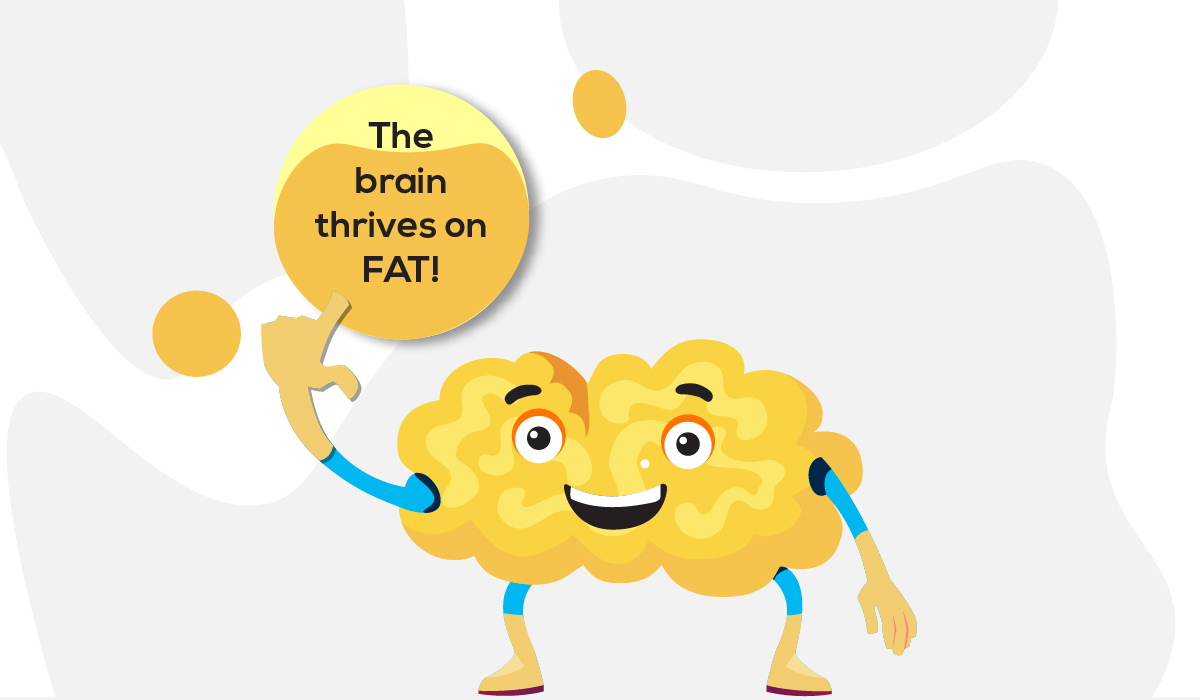
Eat Healthy Fats and Anti-Inflammatory Foods to Promote Cognitive Function
Leandro Pucci MS, CNS®, CKNS®, LDN, ACSM-PT: Leandro Pucci Nutrition
“The brain thrives on fat!
Our brain is composed of at least sixty percent fat, and half of that fat is omega-3s. For many years now, we have been conditioned to believe that eating fat is detrimental to our health. During the same period, the incidence of cognitive issues has increased.
To keep our brain healthy it’s an excellent idea to consume foods rich in Omega-3s, and fatty fish is at the top of the list. Salmon, sardines, and mackerel are great choices. Next, eating foods rich in antioxidants and anti-inflammatories would also bring benefits. Broccoli, blueberries, Tumeric, dark chocolate (with no sugar), seeds and nuts, and green tea will help boost brain function. And don’t forget your pasture-raised eggs rich in Choline and B vitamins, which are crucial for brain energy production.”
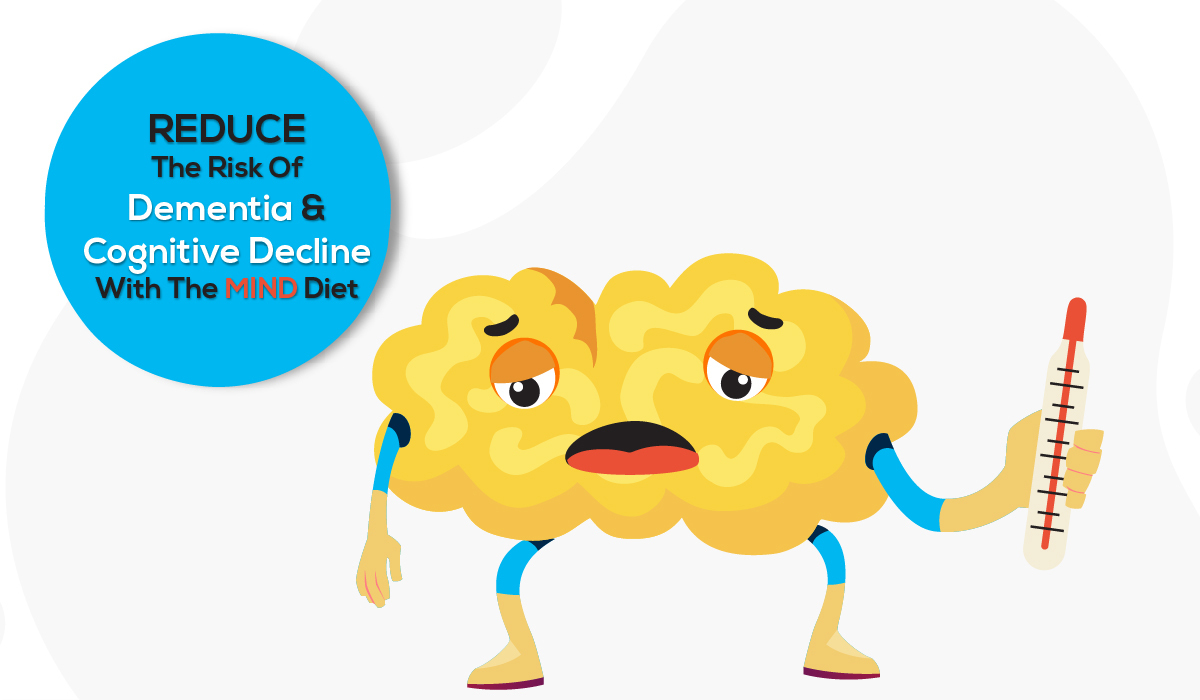
Reduce the Risk of Dementia and Cognitive Decline with the MIND Diet
Katie Dodd, MS, RDN, CSG, LD, FAND: The Geriatric Dietician
“The MIND (Mediterranean-DASH Intervention for Neurodegenerative Delay) Diet is associated with a reduced risk of Alzheimer’s disease. These brain-healthy foods include green leafy vegetables, berries, olive oil, nuts, whole grains, fish, beans, and poultry.”
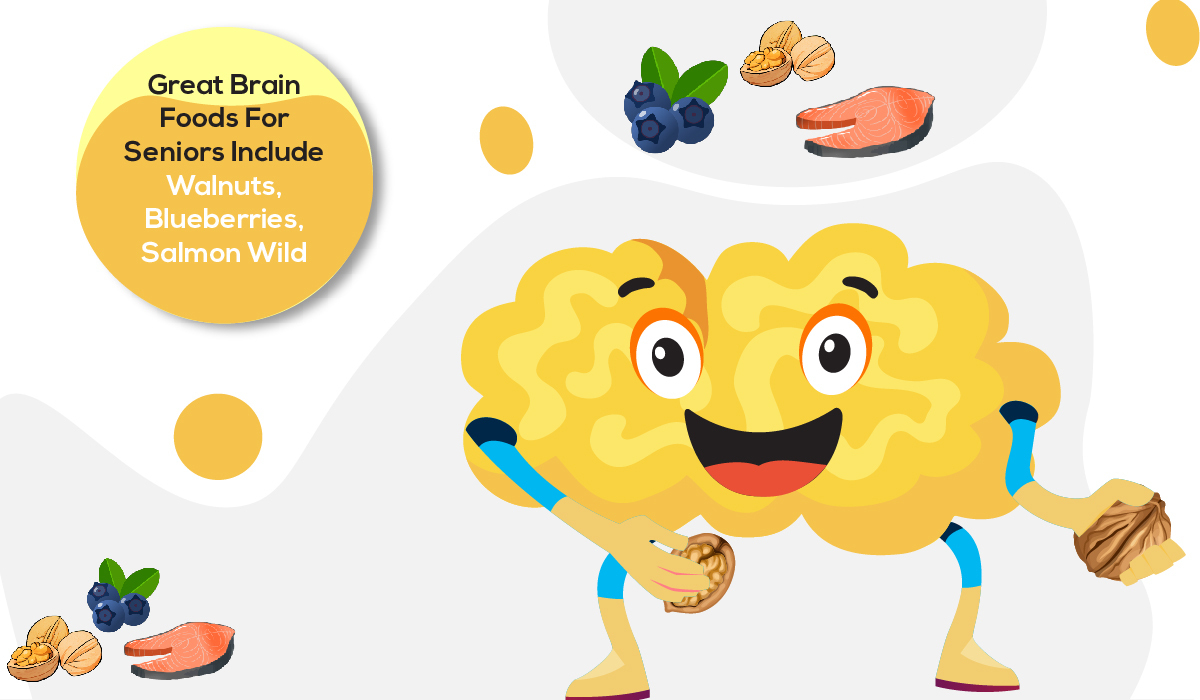
Eat Blueberries, Wild Salmon, and Walnuts for Improved Brain Health and Cognition
Caitlin Beale, MS, RDN: Caitlin Beale Wellness
“Great brain foods for seniors include:
- Blueberries. Filled with antioxidants, blueberries are anti-inflammatory and reduce oxidative stress that can affect brain function.
- Wild salmon. A great source of omega-3 fatty acids, especially DHA. Low levels of DHA are associated with increased risks of Alzheimer’s and dementia.
- Walnuts. In addition to a plant-based source of protein, walnuts are also good sources of omega-3 fatty acids and have been shown to improve cognition. They also resemble brains.”
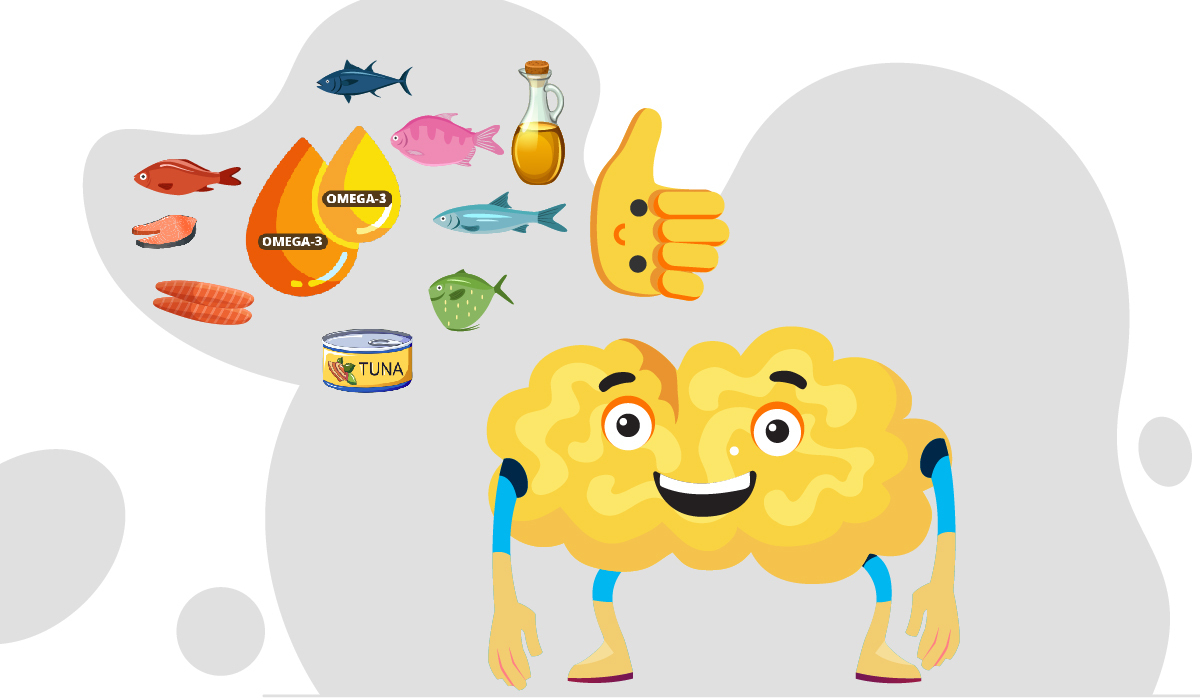
Choose Oily Fish, Such as Salmon, Tuna, Sardines, and Herring, for Omega 3 Fats
Jen Powers, MS, RDN: Soultrition
“Foods that are rich in healthy fats are good for the brain. Oily fish like salmon, tuna, sardines, and herring are a good source of omega 3 fats. Walnuts, chia seeds, and flax seeds have ALA, Alpha Lipoic Acid. Avocados are another source of healthy brain fats. Other than fat, foods that contain antioxidants like berries and dark chocolate also benefit the brain.”
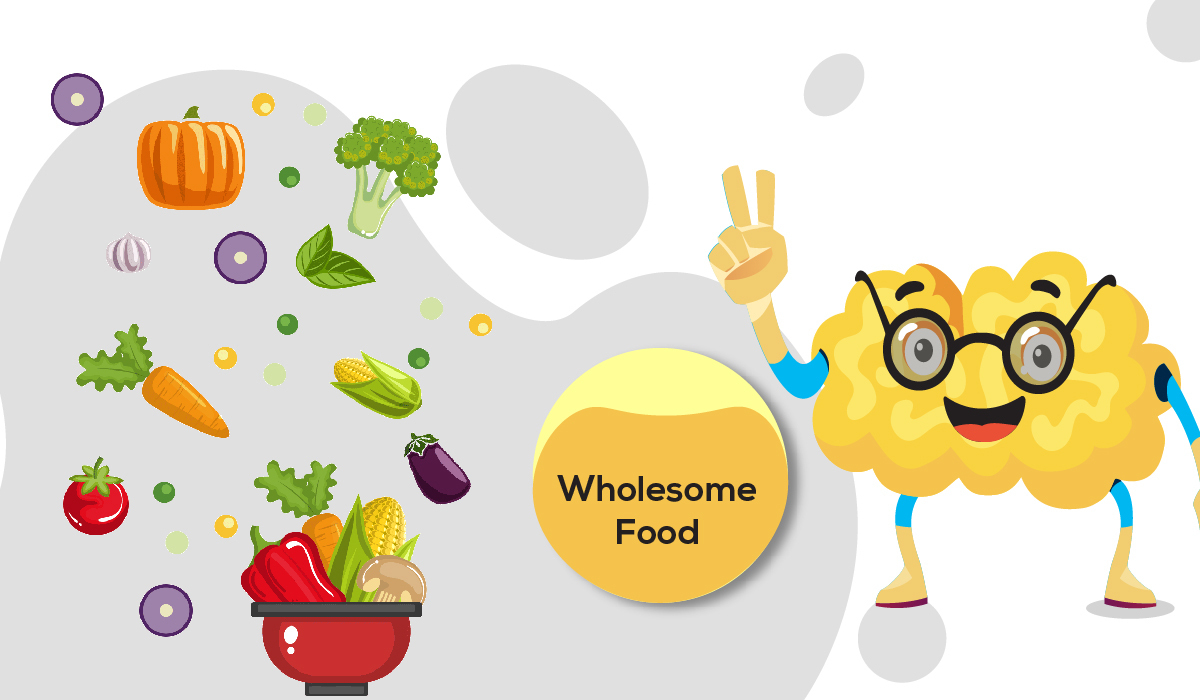
Choose Wholesome Foods from All Food Groups Every Day for Huge Health Benefits
Leonila Campos RD, CLE: Fueled By Leo
“As we get older, we look for the fountain of youth and specific foods that are going to help us stay young. However, there is not one specific food that has been found to help with our aging brain. Having a balanced meal and choosing from a variety of foods is beneficial. If we were to provide specific food groups based on research, we know that dark green vegetables such as spinach, kale, and broccoli have been found to help with cognitive functioning in older adults. Dark fruits such as blueberries, strawberries, cherries, plums, and cherries are excellent sources of antioxidants that help protect our cells from oxidative damage. Healthy essential fatty acids are also needed in our diet since our bodies cannot produce them. We need to add small amounts of monounsaturated fatty acids found in walnuts, pecans, cold-pressed olive oil, and avocado to name a few, as well as polyunsaturated fatty acids found in salmon, sardines, trout, walnuts, flaxseeds, and chia seeds. The important factor to remember here is that we should not focus on having just one type of food because it has a “disclaimer” to help our aging brain, but instead, focus on having wholesome foods from all food groups and provide a variety of colors.”
Conclusion
According to an AARP article, getting your key nutrients through vitamin supplements doesn’t provide the same result as getting those nutrients through healthy eating. If you want to improve your cognitive health, choose foods that are high in antioxidants, rich in Omega 3 fats, or high in B vitamins, and select a variety of healthy foods from all food groups. Eating the right foods can provide a lower risk of cognitive decline and improve your well-being.
DISCLAIMER
This content is for informational purposes only and is not a substitute for professional medical advice or treatment for health problems. You should talk with your healthcare provider before making any dietary changes. Your doctor can provide you with the best advice for you, taking into consideration your specific situation and any medical conditions you may have.






